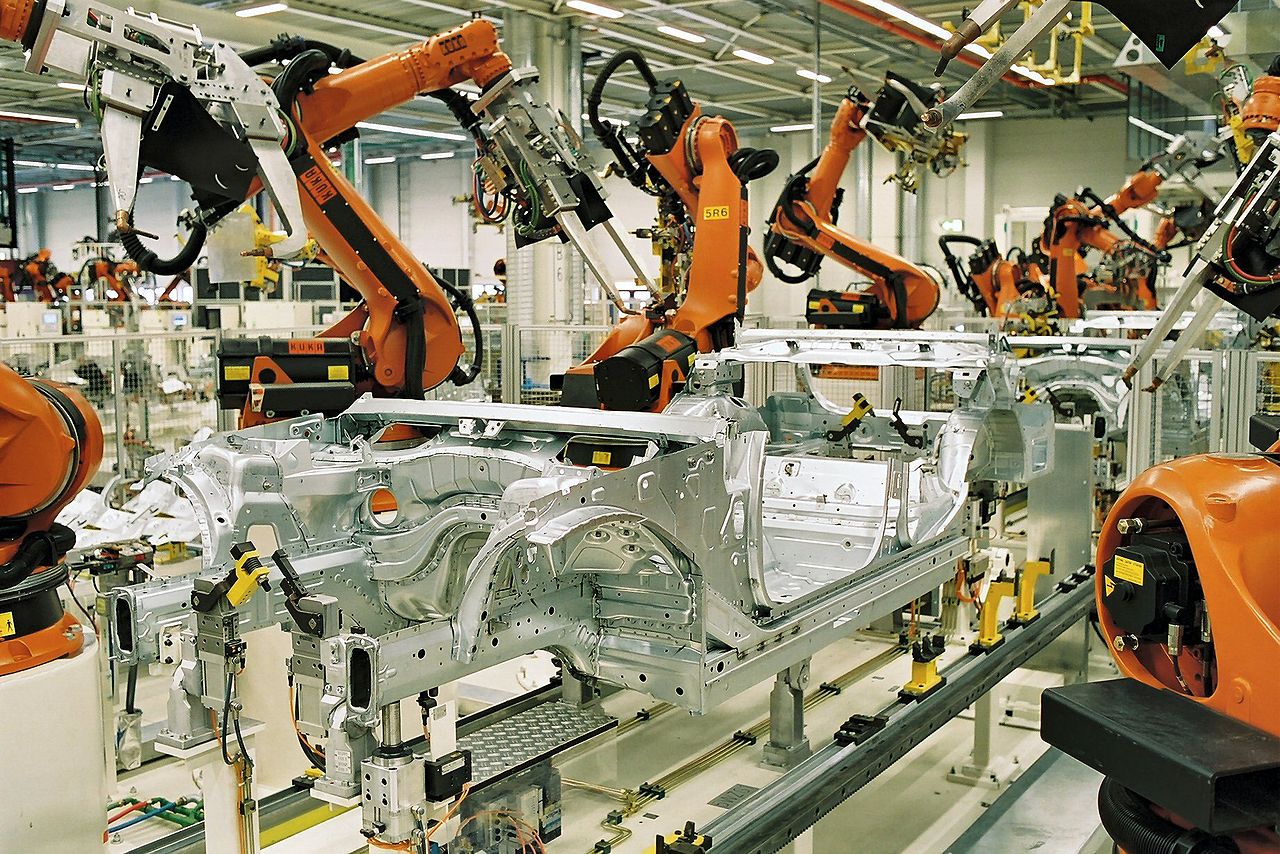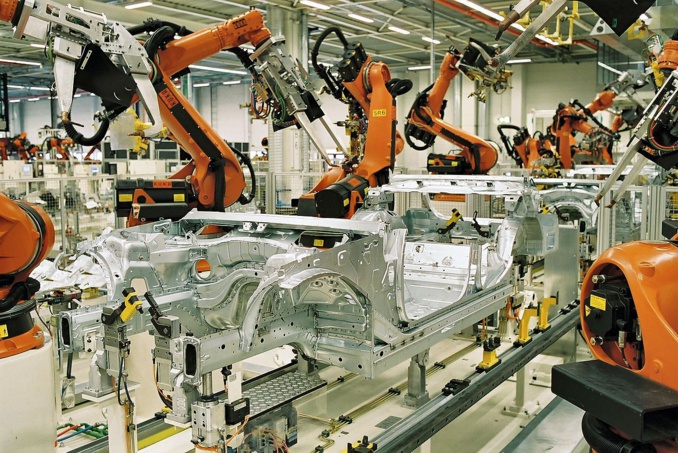Institute for Public Policy Research UK held a study. The paper suggests that the human factor in the economy is now endangered, as human labor is the most important factor of production.
The report’s author Mathew Lawrence report believes that introduction of new technologies, such as artificial intelligence, machine learning and unmanned vehicles, "will change the social and economic life beyond recognition ", especially in low-paid jobs, which are imperiled.
He estimates that 2 million jobs will disappear from retail by 2030.
Lawrence believes that era of full automation will either result in universal prosperity, or "radically change the economy", creating something like a "world of machines", if humanity fails to properly dispose of technological innovations.
The report has become part of a growing global consensus on the fact that achievements in the field of automation and robotics can destroy a large number of jobs in a number of industries.
Obama said in December that artificial intelligence can lead to an increase in inequality, destroying the very need for human labor in production and transport of goods.
The World Economic Forum predicted "fourth industrial revolution" in January this year, noting that automation will destroy 6 million jobs by 2020.
Lawrence argues that industrial automation may lead to "a new form of economic feudalism". At that, he says: "Owners of robotics will make a profit, the rest will be forced to fight for survival, as human labor would lose its relevance in the production process."
Lawrence believes that automation must find "consistency" to counter such an outcome. Manufacturers need to introduce payment hierarchy and system of education, which would promote development of creative forces and skills of people – controllers of robots. Shorter working week would allow fairly divide labor productivity growth, and introduction of universal basic income would help make up for income in the labor market.
The labor market is already changing its shape. Wal-Mart, the US Department of Defense, Foxconn and Amazon are introducing automated processes, and are replacing human labor with them.
"Employment in manufacturing has now returned to the level of 1941. This trend is observed worldwide, not just in the United States, and is caused by growth of labor productivity" - said James Smith, chief economist at Parsec Financial.
Decline of employment in the manufacturing industry has become a hot topic during the US presidential election. President-elect Donald Trump has promised to renegotiate terms of US trade agreements for American workers to get better protection from foreign competition.
Previously, he traveled to Indianapolis to announce that Carrier Corp. saves approximately one-third of jobs at its Indiana plant. Previously, the manufacturer was going to transfer part of the production to Mexico.
Nevertheless, many of economists agreed with Smith that the most important reason for shrinking number of workers lies in industrial automation.
Improvements in assembly technology systems and growing number of industrial robots allow US manufacturers to produce more goods than ever before, but with much lower labor costs.
Even if all outsourcing were immediately stopped, technological breakthrough would have a steady downward pressure on level of employment in the manufacturing sector.
source: businessinsider.com
The report’s author Mathew Lawrence report believes that introduction of new technologies, such as artificial intelligence, machine learning and unmanned vehicles, "will change the social and economic life beyond recognition ", especially in low-paid jobs, which are imperiled.
He estimates that 2 million jobs will disappear from retail by 2030.
Lawrence believes that era of full automation will either result in universal prosperity, or "radically change the economy", creating something like a "world of machines", if humanity fails to properly dispose of technological innovations.
The report has become part of a growing global consensus on the fact that achievements in the field of automation and robotics can destroy a large number of jobs in a number of industries.
Obama said in December that artificial intelligence can lead to an increase in inequality, destroying the very need for human labor in production and transport of goods.
The World Economic Forum predicted "fourth industrial revolution" in January this year, noting that automation will destroy 6 million jobs by 2020.
Lawrence argues that industrial automation may lead to "a new form of economic feudalism". At that, he says: "Owners of robotics will make a profit, the rest will be forced to fight for survival, as human labor would lose its relevance in the production process."
Lawrence believes that automation must find "consistency" to counter such an outcome. Manufacturers need to introduce payment hierarchy and system of education, which would promote development of creative forces and skills of people – controllers of robots. Shorter working week would allow fairly divide labor productivity growth, and introduction of universal basic income would help make up for income in the labor market.
The labor market is already changing its shape. Wal-Mart, the US Department of Defense, Foxconn and Amazon are introducing automated processes, and are replacing human labor with them.
"Employment in manufacturing has now returned to the level of 1941. This trend is observed worldwide, not just in the United States, and is caused by growth of labor productivity" - said James Smith, chief economist at Parsec Financial.
Decline of employment in the manufacturing industry has become a hot topic during the US presidential election. President-elect Donald Trump has promised to renegotiate terms of US trade agreements for American workers to get better protection from foreign competition.
Previously, he traveled to Indianapolis to announce that Carrier Corp. saves approximately one-third of jobs at its Indiana plant. Previously, the manufacturer was going to transfer part of the production to Mexico.
Nevertheless, many of economists agreed with Smith that the most important reason for shrinking number of workers lies in industrial automation.
Improvements in assembly technology systems and growing number of industrial robots allow US manufacturers to produce more goods than ever before, but with much lower labor costs.
Even if all outsourcing were immediately stopped, technological breakthrough would have a steady downward pressure on level of employment in the manufacturing sector.
source: businessinsider.com



















